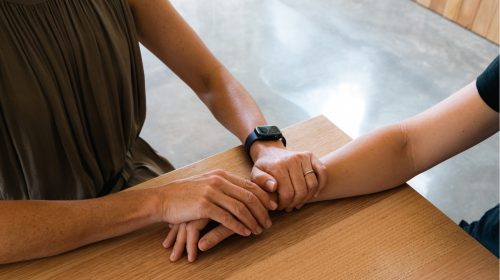When it comes to addiction rehabilitation, family and loved ones can be the difference between success and disappointment. Exactly how we involve and include families in the recovery process is key, says psychologist Jane Enter.
It’s often said that addiction is a family affair. The heartbreak and devastation an addiction can wreak is not limited to the person with the addiction, and families especially often bear the heaviest load. Conversely, in many circumstances family or loved ones can contribute to negative feelings or behaviours in the person experiencing addiction. So, it stands to reason that family plays a key role in recovery. Defining exactly what that role is, and how it is implemented is an important step toward sustainable change.
Psychologist Jane Enter has over four decades experience in addiction rehabilitation and has seen the difference family support can make to someone in recovery.
“As rehabilitation providers, we absolutely encourage families to be part of the process,” says Enter. “We have a much greater chance of success if we have the support and buy-in from family and loved ones.
“Family can be great advocates, they can be the key to sustained change, and they can be instrumental in bringing everything learned in rehab into the real world.
“But it is vitally important that before we see the family member or loved one as a tool to assist the person with the addiction, we first see them for what they are: a person with their own life, their own experiences, and specifically, their own experience of this addiction.”
Enter explains that at Raindrum Private Rehabilitation, where she is co-clinical director, the family experience is different to many other clinics.
“In a lot of rehab centres, there is a practice called Family Day,” Enter says. “That is where at certain stage of a treatment program, the family is bought in to meet with the client and discuss anything the family wants or needs to bring up.
“There are of course some positives to this approach, and for some people it works, but in my experience, what usually happens is that once the client is in treatment, the family is able to let go of some of the worry and concern they have been feeling – because they know their loved one is in safe hands. That makes room for a lot of resentment, hurt and anger to rise to the surface. These are feelings that have often – quite understandably – been building for some time.
“In a situation such as family days, those feelings can come out in a way that is really unhelpful. The person going through rehab is left feeling terrible about themselves and they can struggle to get back on track. And while the family may feel a sense of relief at getting some things off their chest – they are ultimately full of regret for how they positioned their feelings.”
Breaking away from this model, Raindrum’s private treatment programs, where clients receive treatment from private and exclusive accommodation, allow for family members to join the client for a short time, once the client has progressed through the majority of their treatment, and where it is deemed appropriate by the clinical team. The family member is treated as an individual, and their own experience is heard and honoured, before they are ever asked to become part of the ongoing support system for the client.
Enter says in the Raindrum model, the family member or loved one is given their own, separate therapist, and their individual experience is heard and understood. Only after this, and when the family member is ready, are they integrated into the treatment program. She believes this is one of the reasons behind the success of Raindrum’s addiction treatment programs.
“That person’s experiences are not merely an extension of the other person’s addiction,” Enter says. “Just as our client is a unique individual, so are their family members. We must recognise this and treat them as such before anything else. We must understand their boundaries and the things that they need. That way, when it is time for our client to leave the program, their family and loved ones are in the best position to move forward.”



